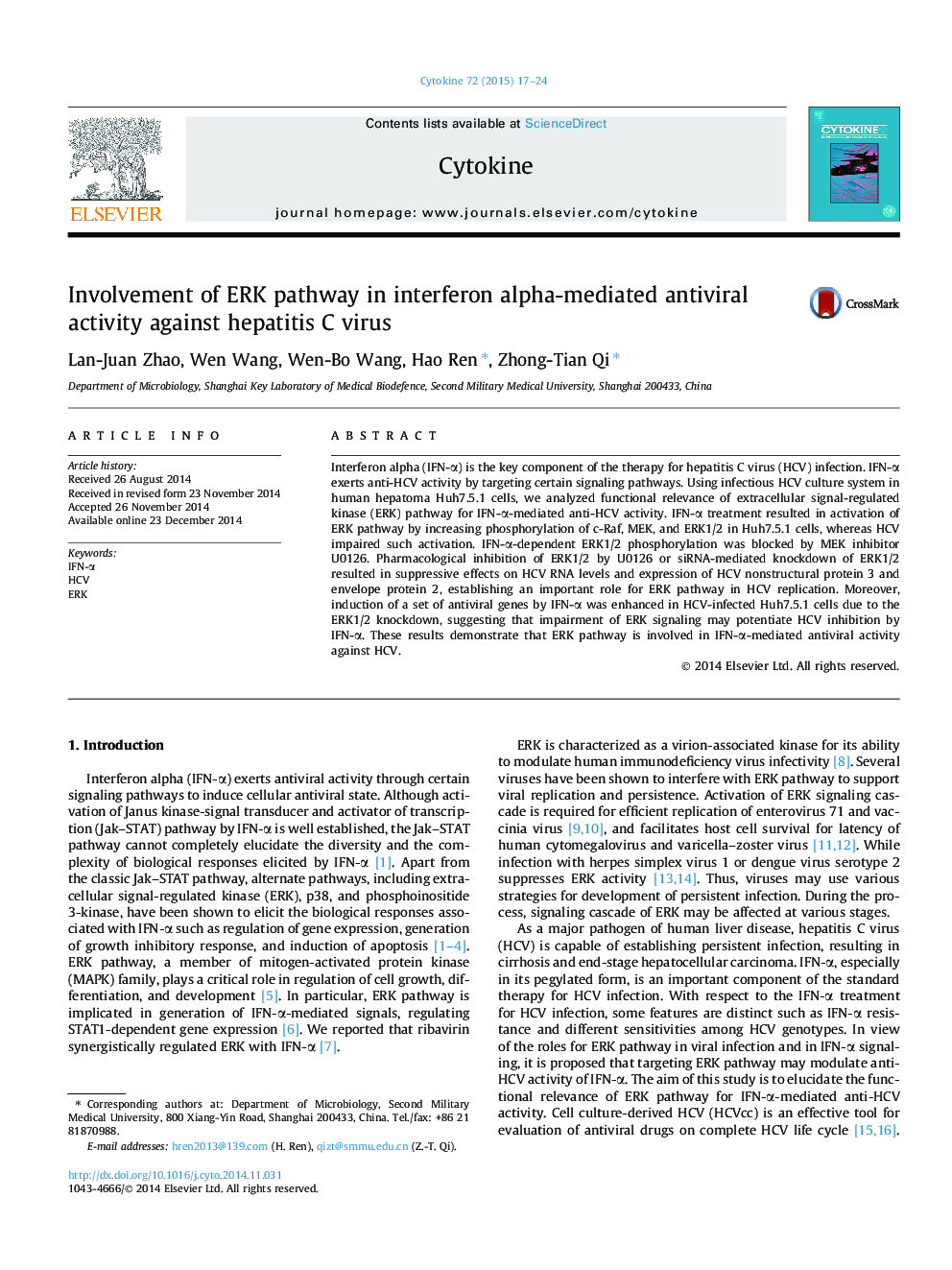| Article ID | Journal | Published Year | Pages | File Type |
|---|---|---|---|---|
| 2794100 | Cytokine | 2015 | 8 Pages |
•HCV impairs ERK signaling triggered by IFN alpha.•Impairment of ERK pathway potentiates HCV inhibition by IFN alpha.•Impairment of ERK pathway enhances antiviral gene induction by IFN alpha.
Interferon alpha (IFN-α) is the key component of the therapy for hepatitis C virus (HCV) infection. IFN-α exerts anti-HCV activity by targeting certain signaling pathways. Using infectious HCV culture system in human hepatoma Huh7.5.1 cells, we analyzed functional relevance of extracellular signal-regulated kinase (ERK) pathway for IFN-α-mediated anti-HCV activity. IFN-α treatment resulted in activation of ERK pathway by increasing phosphorylation of c-Raf, MEK, and ERK1/2 in Huh7.5.1 cells, whereas HCV impaired such activation. IFN-α-dependent ERK1/2 phosphorylation was blocked by MEK inhibitor U0126. Pharmacological inhibition of ERK1/2 by U0126 or siRNA-mediated knockdown of ERK1/2 resulted in suppressive effects on HCV RNA levels and expression of HCV nonstructural protein 3 and envelope protein 2, establishing an important role for ERK pathway in HCV replication. Moreover, induction of a set of antiviral genes by IFN-α was enhanced in HCV-infected Huh7.5.1 cells due to the ERK1/2 knockdown, suggesting that impairment of ERK signaling may potentiate HCV inhibition by IFN-α. These results demonstrate that ERK pathway is involved in IFN-α-mediated antiviral activity against HCV.
